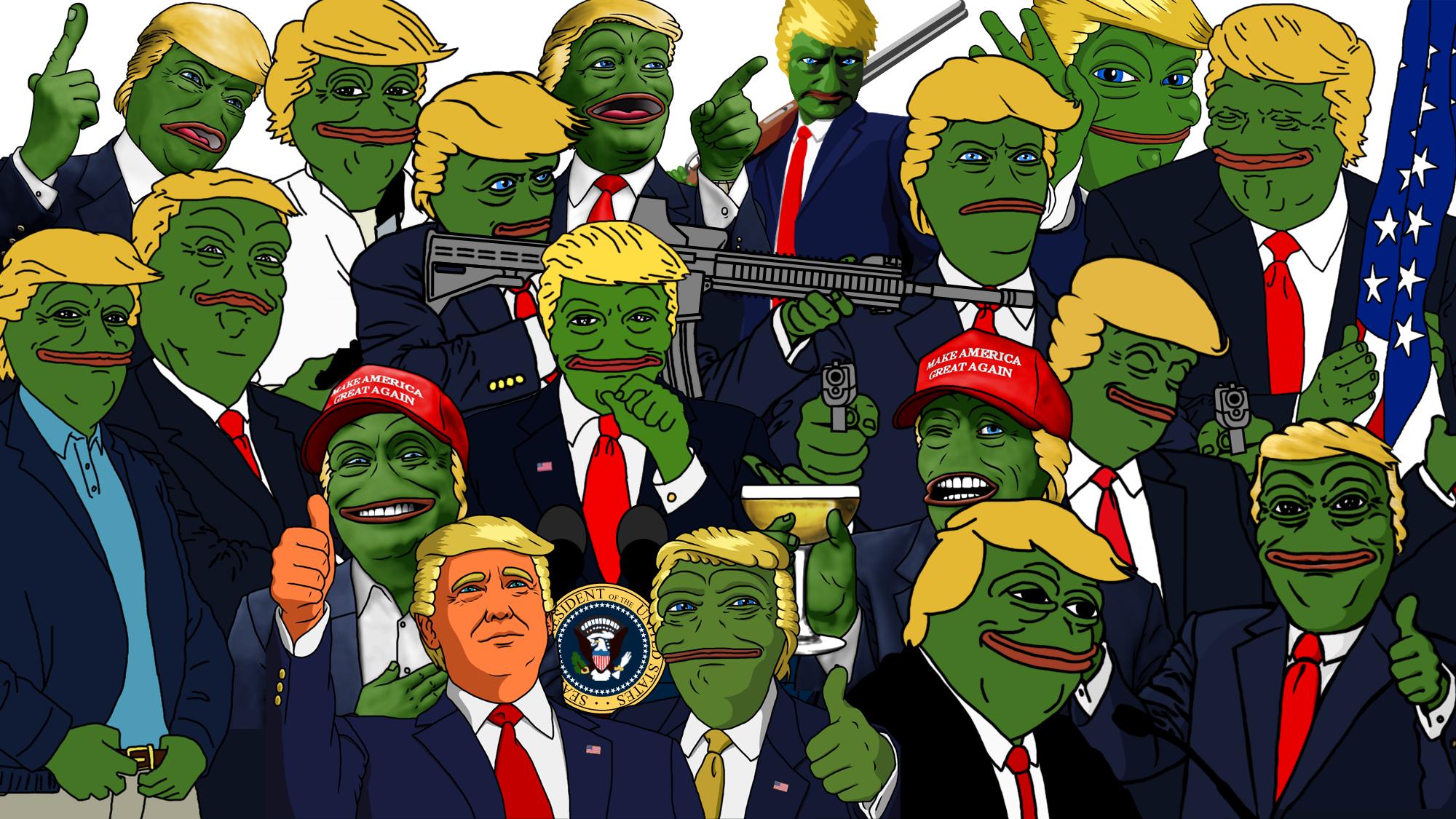In my blog post I will discuss the
two media texts Martin Luther’s 95 theses and “Pepe the Frog” meme in the
context of Donald Trump’s 2016 Presidential campaign and how they relate in the
third articulation of media ecologies. The third articulation is mainly
concerned with how media messages are created and spread throughout a culture
and society and how they are manifested in relations of creativity and production, relations of distribution and circulation, and relations of consumption and reception.
 Martin
Luther’s theses gained momentum through the dissemination of pamphlets being
re-published and sold throughout different cities by different merchants. His
message became viral when other people were able to disseminate his message to
others for him as well, and the more popular it became the higher in demand for
production of these pamphlets were. This can be compared similarly to the meme “Pepe
the Frog” whose meme became a popular tool in Donald Trump’s political
campaign. Originally “Pepe the Frog” was a popular internet symbol that had been
around for years known as “Feels Bad Man” because of how sad he looked and has
been taken and re-symbolized by others on the internet for different purposes.
The dissemination of the Trump version of “Pepe the Frog” became viral when
Trump himself re-tweeted it. From their this character lead to “...a mass
influx of pro-Trump Pepes” (Williams, 2016). Williams argues that this meme
serves as a way for “Trump followers to echo their implicit support for
ultraconservative beliefs in public forums” (Williams, 2016).
Martin
Luther’s theses gained momentum through the dissemination of pamphlets being
re-published and sold throughout different cities by different merchants. His
message became viral when other people were able to disseminate his message to
others for him as well, and the more popular it became the higher in demand for
production of these pamphlets were. This can be compared similarly to the meme “Pepe
the Frog” whose meme became a popular tool in Donald Trump’s political
campaign. Originally “Pepe the Frog” was a popular internet symbol that had been
around for years known as “Feels Bad Man” because of how sad he looked and has
been taken and re-symbolized by others on the internet for different purposes.
The dissemination of the Trump version of “Pepe the Frog” became viral when
Trump himself re-tweeted it. From their this character lead to “...a mass
influx of pro-Trump Pepes” (Williams, 2016). Williams argues that this meme
serves as a way for “Trump followers to echo their implicit support for
ultraconservative beliefs in public forums” (Williams, 2016).
We can view this similarly to the way
in which Martin Luther’s theses were disseminated, people who supported it
would buy it, read it and disseminate it to others in support of Luther. The more
support both got, the more material was produced and disseminated, in the case
of Luther it would be the amount of pamphlets produced and for “Pepe the Frog”
the creation of new Trump memes.
Work Cited
Williams, A. (2016). How Pepe the Frog and
Nasty Woman Are Shaping the Election. The New York
Times.

No comments:
Post a Comment